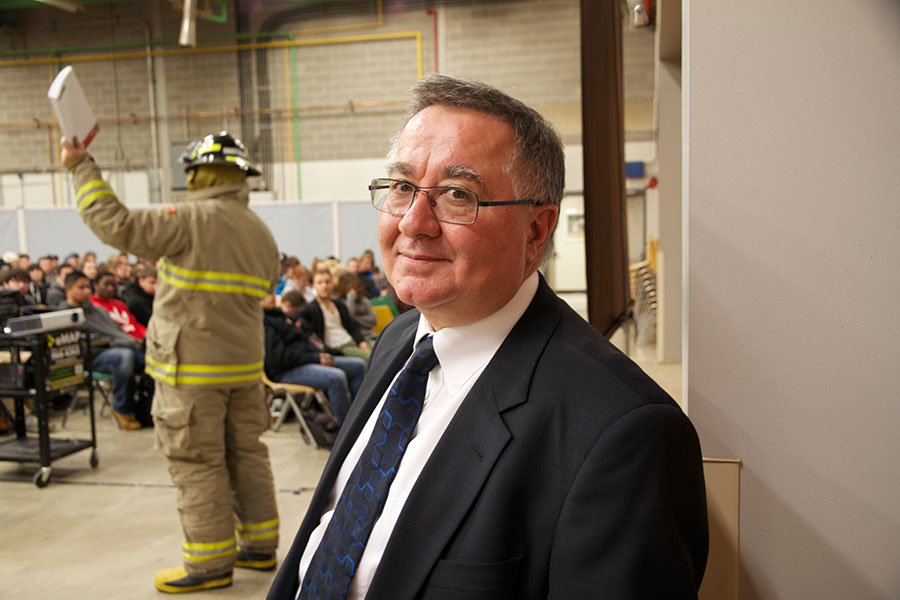Safety Day for engineers
There are many responsibilities placed on professional engineers, one of the most important is to ensure the health and safety of the public and to promote health and safety in the workplace, and that was the focus of a full day of presentations in early January for students in the College of Engineering.
By Colleen MacPherson The first-ever Safety Day grew out of a recognition that the education of future engineers must recognize the full range of experiences they will face in their careers, explained Denard Lynch, a professor of electrical engineering and co-chair of the Safety Day organizing committee.
The first-ever Safety Day grew out of a recognition that the education of future engineers must recognize the full range of experiences they will face in their careers, explained Denard Lynch, a professor of electrical engineering and co-chair of the Safety Day organizing committee.
In fact, the first tenet in the code of ethics set out in the provincial Engineering and Geoscience Professions Act states professionals must "hold paramount" the safety, health and welfare of the public, the protection of the environment "and health and safety within the workplace."
For Lynch, the higher on the list of responsibilities, "the more important it is, and this is number one." All engineering programs deal to some degree with safety, said Lynch, but with the profession itself paying more attention to safety, "we now recognize that we have to place more emphasis on it in our curriculum."
Supported by the college dean and by all faculty, the organizing committee drew on internal resources and local industry partners with an interest in safety awareness to organize various presentations throughout the full-day event. Multiple sessions of each presentation were offered to accommodate student schedules, "and all students were strongly encouraged to attend," Lynch said. Over 1,200 did.
The day included a University of Saskatchewan workplace hazardous materials course for first-year students and a variety of other presentations for upper-year students. These included occupational health and safety, workplace safety, and the legal and ethical responsibility of engineers for safety.
Industry partners volunteered their time to talk about their own programs and what Lynch termed "their culture of safety." There were also presenters from the Association of Professional Engineers and Geoscientists of Saskatchewan. The contribution of the industry partners in particular is invaluable, said Lynch. "We're a kind of service provider to industry in that we're preparing their future employees and so it's very good for students to hear what the expectations are from potential employers."
Planning is already underway for another Safety Day in the fall. Lynch said he expects the structure will see new first-year students taking part in the university hazardous materials course and the new second-year students offered the broader range of programming.
Lynch also expressed an interest in seeing discipline-specific courses developed, site-visit safety for civil engineering students being one example. Lynch is also interested in helping students develop a better understanding of safety psychology, an area of particular personal interest that he addresses in his Engineering in Society class.
As part of that class, Lynch presents a case study of the Westray Mine disaster, a methane gas and coal dust explosion that killed 26 miners on May 9, 1992 in Plymouth, Nova Scotia. In reading the report of the subsequent public inquiry, Lynch said he was struck by the summary of Justice Kenneth Peter Richards who, "in unusually strong language ends with a number of ‘what if' questions—What if this person had done this? What if that had happened?—any one of which could have diverted the disaster."
Lynch is intrigued with how humans think about safety "and by using the Westray example, I try to convey to my students that even on the most stressful day, one person doing their job right can avert disaster, and that person could be them. Even if they sometimes feel like just one cog in a big wheel, they really can make a difference, and that difference could save a life."
Of course the challenge for engineers is that they may never know when the action they took did save lives, but they must have faith that it will, explained Lynch, adding that the class is invariably silent when he's done his Westray lecture, which he calls "Faith of an Engineer."

